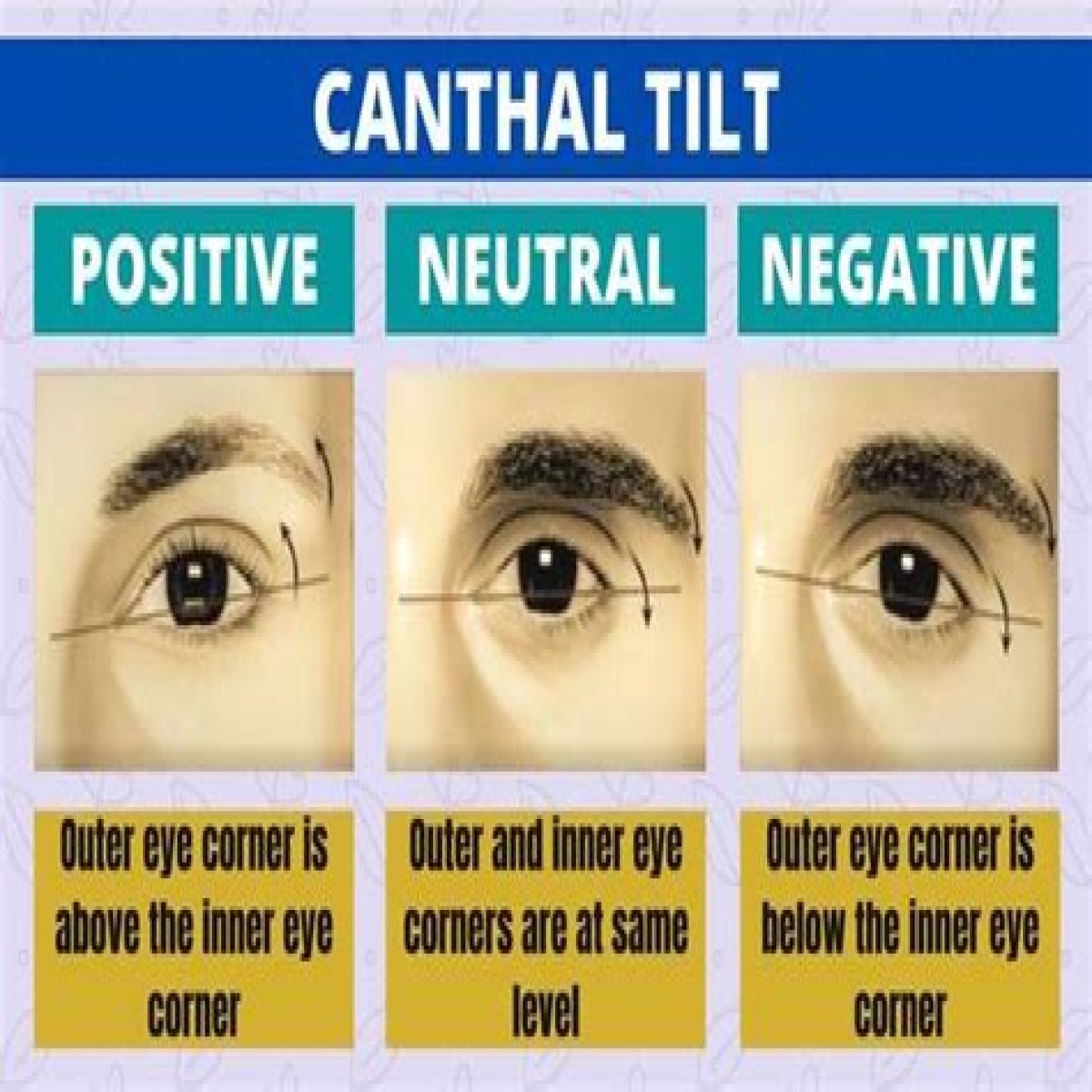Canthal tilt refers to the angle formed by the outer and inner corners of the eyes, a subtle yet striking feature that can greatly influence one's facial aesthetics. This unique characteristic is often discussed in the fields of beauty and plastic surgery, as it can affect perceptions of attractiveness and youthfulness. The tilt can vary from person to person, and while some may have a pronounced canthal tilt, others may have a more neutral or even downward angle.
The significance of canthal tilt extends beyond mere aesthetics; it is also a point of interest in anthropology and evolutionary biology. Researchers have studied how this feature plays a role in mate selection and social interactions. A positive canthal tilt, which is often associated with a more youthful and vibrant appearance, can impact personal and professional relationships, making it a fascinating topic worthy of exploration.
As we dive deeper into the concept of canthal tilt, we will explore what it is, its implications in beauty standards, and how it influences perceptions of individuals, including those in the public eye. Understanding canthal tilt can provide a greater appreciation for the diversity of human faces and the factors that contribute to our perceptions of beauty.
- What is Canthal Tilt?
- How Does Canthal Tilt Affect Perceptions of Beauty?
- Are There Cultural Differences in Canthal Tilt Preferences?
- Is Canthal Tilt Genetic or Alterable?
- What Are the Surgical Options for Altering Canthal Tilt?
- Are There Risks Associated with Canthal Tilt Surgery?
- Who Are Some Notable Figures with Remarkable Canthal Tilt?
What is Canthal Tilt?
Canthal tilt is defined as the angle between the inner and outer canthi (corners) of the eyes. A positive canthal tilt occurs when the outer canthus is higher than the inner canthus, while a negative canthal tilt features the outer canthus positioned lower than the inner canthus. This subtle angle plays a significant role in defining facial harmony and proportion.
How Does Canthal Tilt Affect Perceptions of Beauty?
The canthal tilt is a key factor in many beauty standards around the world. A positive canthal tilt is often associated with youthfulness, alertness, and attractiveness. Studies have shown that faces with a more pronounced positive tilt are frequently rated as more appealing by observers. This has led to a growing interest in cosmetic procedures aimed at altering the canthal tilt to enhance beauty.
Are There Cultural Differences in Canthal Tilt Preferences?
Yes, cultural perceptions of beauty can vary significantly, including preferences for canthal tilt. In some cultures, a pronounced positive canthal tilt is idealized, while in others, a more neutral or even negative tilt may be preferred. These differences reflect broader cultural values and ideals concerning beauty, age, and femininity or masculinity.
Can Canthal Tilt Affect One's Career Opportunities?
Interestingly, studies have suggested that individuals with a more favorable canthal tilt may experience advantages in various professional settings. This can be attributed to the universal appeal of their facial features, which can influence hiring decisions, client interactions, and overall professional image. Thus, the canthal tilt may play a role in shaping one’s career trajectory.
Is Canthal Tilt Genetic or Alterable?
The canthal tilt is primarily determined by genetics, influencing the structure and shape of facial bones and skin. However, cosmetic surgery can alter the canthal tilt, allowing individuals to adjust their appearance. Procedures such as canthoplasty can create a more desirable angle, improving facial balance and attractiveness.
What Are the Surgical Options for Altering Canthal Tilt?
- Canthoplasty: A surgical procedure that modifies the shape of the eyelids to achieve a more favorable canthal tilt.
- Blepharoplasty: Often combined with canthoplasty, this procedure focuses on the eyelids to reduce excess skin and fat, enhancing the overall appearance of the eyes.
- Injectables: Non-surgical options like fillers can be used to create a temporary change in the appearance of the canthal area.
Are There Risks Associated with Canthal Tilt Surgery?
As with any surgical procedure, altering the canthal tilt comes with potential risks. Complications may include infection, scarring, asymmetry, and dissatisfaction with the results. It is crucial for anyone considering surgery to consult with a qualified plastic surgeon to discuss their options and potential outcomes.
Who Are Some Notable Figures with Remarkable Canthal Tilt?
| Name | Profession | Canthal Tilt Type |
|---|---|---|
| Angelina Jolie | Actress | Positive Canthal Tilt |
| Gigi Hadid | Model | Positive Canthal Tilt |
| Taylor Swift | Singer | Positive Canthal Tilt |
| Rihanna | Singer | Neutral Canthal Tilt |
In summary, the concept of canthal tilt is an intriguing aspect of facial aesthetics that has a profound impact on perceptions of beauty, cultural ideals, and even professional opportunities. As both a genetic trait and a feature that can be altered through cosmetic procedures, canthal tilt remains a focal point of interest for those in the beauty and medical fields. Understanding this unique angle can lead to deeper insights into human beauty standards and the ways in which we perceive one another.
Unveiling The Life Of Jesseca Dupart's Ex HusbandArchie And Lilibet 2024: A Year Of New BeginningsKaran Johar: The Enigma Of His Spouse
